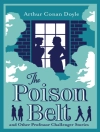In ‘A Child of the Jago – Tales from the London Rookeries, ‘ Arthur Morrison offers a piercing portrayal of London’s impoverished underbelly, specifically the densely packed rookeries of the East End. Written in a naturalistic style, Morrison employs detailed descriptions and gritty realism to immerse readers in the squalor and harsh realities faced by its inhabitants. The narrative centers on the life of the young protagonist, whose journey through poverty, crime, and moral dilemmas highlights the social injustices of Victorian society. Rooted in the context of late 19th-century London, the novel serves not only as a narrative of survival but also as a critique of systemic neglect towards the urban poor. Arthur Morrison, an influential figure in social realism and a keen observer of city life, drew from his own experiences in impoverished London neighborhoods to craft this compelling account. His background as a journalist and interest in the plight of the working class profoundly informed his writing. Morrison’s own encounters with social issues sharpened his ability to capture the nuances of life in the rookeries, making the tale both personal and poignant. This novel is essential reading for those interested in Victorian literature, social justice, and historical context. Morrison’s vivid storytelling not only chronicles a child’s fight for survival but also serves as a powerful reminder of the human spirit’s resilience. Readers will find in this work a compelling blend of narrative and social commentary that remains relevant today.
Sobre o autor
Arthur Morrison (1863–1945) was an English writer and journalist known primarily for his realistic novels and stories depicting the lives of the working poor in London’s East End during the late Victorian era. Morrison’s work is notable for its vivid portrayal of the brutalities and hardships faced by those living in the slums, especially at a time when the social novel was gaining prominence as a medium for reform and social commentary. His most acclaimed work, ‘A Child of the Jago’ (1896), remains a landmark in the canon of British social realism. The novel presents a harrowing narrative set in a fictionalized version of the Old Nichol, a notorious slum in Bethnal Green. Morrison’s portrayal of the central character’s struggle for survival amid squalor was informed by his own observations while working as a journalist, where he was exposed to the dire realities faced by the impoverished masses. The book’s stark depiction of life in the ‘Jago’ provided readers with a raw look at the societal ills of the period, and it has since become a crucial text for those interested in the literary and historical representation of the Victorian underclass. Morrison’s literary style, characterized by its detailed and sympathetic yet unflinching commentary on the human condition, cemented his reputation as a significant voice in the world of social-problem fiction (Morrison, 1896; Child of the Jago). Beyond ‘A Child of the Jago’, Morrison’s corpus extends to tales and sketches that continued to shed light on the lived experiences of London’s poorest, often contributing keen insights into the complexities of urban life at the turn of the century.












